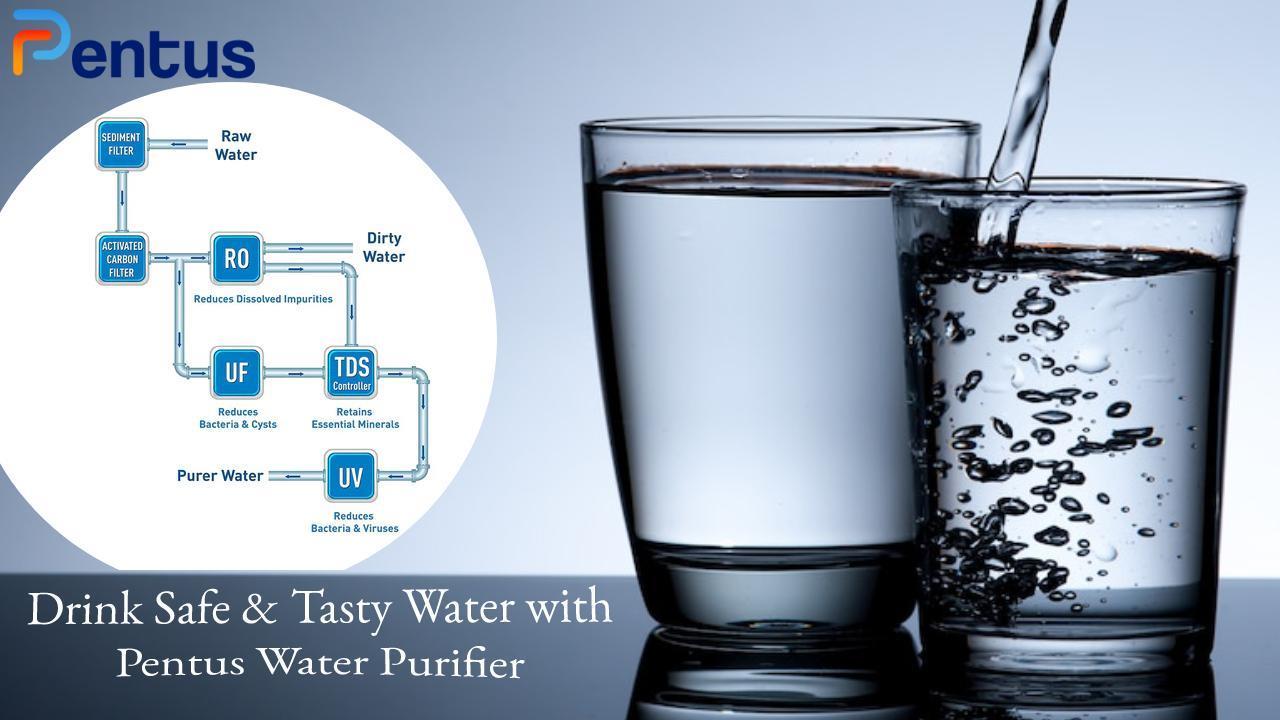Things to Consider Before Buying a Water Purifier for Home in Delhi


When it comes to ensuring the safety and purity of the water we consume, choosing the right water purifier for your home in Delhi is of the utmost importance. With increasing concerns about water contamination and the potential health risks associated with it, having a reliable and effective water purifier is essential. In this comprehensive guide, we will walk you through the key factors to consider when selecting a water purifier for your home in Delhi, providing you with valuable insights to make an informed decision.
Here are some tips on how to select the right water purifier for your home in Delhi:
Consider the Water Quality in Your Area

Before diving into the world of water purifiers, it is crucial to understand the quality of water in Delhi. The first step is to get your water tested by a reputable laboratory to identify the specific impurities and contaminants present. This analysis will give you a clear understanding of the kind of purification technology you require. Delhi's water supply is known to have impurities such as bacteria, viruses, heavy metals, pesticides, and high TDS (Total Dissolved Solids) levels. Armed with this knowledge, you can now proceed to select the most suitable water purifier.
Decide on the Type of Water Purifier You Want
There are four types of water purifiers: RO (reverse osmosis), UF (ultrafiltration), UV (ultraviolet), and Activated Carbon Purifiers. RO purifiers are more effective at removing contaminants, but they also produce more wastewater. UF purifiers are less effective at removing contaminants, but they produce less wastewater.

Reverse Osmosis (RO) Purifiers

RO purifiers are highly effective in removing dissolved impurities, heavy metals, and TDS from water. They employ a semi-permeable membrane that filters out contaminants while allowing pure water to pass through. RO purifiers are particularly useful in areas with high TDS levels, making them a popular choice in Delhi.
Ultraviolet (UV) Purifiers
UV purifiers use ultraviolet light to kill microorganisms like bacteria and viruses present in the water. They are effective in disinfecting water but do not remove dissolved impurities or TDS. UV purifiers are commonly used in conjunction with other purification technologies to ensure comprehensive water treatment.
Ultrafiltration (UF) Purifiers
UF purifiers operate on a membrane-based filtration process that eliminates bacteria, viruses, and larger impurities. However, they may not be as effective in removing dissolved impurities, or TDS. UF purifiers are often recommended for areas where the water supply has low TDS levels.
Activated Carbon Purifiers

Activated carbon purifiers use activated carbon filters to absorb impurities, chlorine, odor, and improve the taste of water. While they are effective in removing organic compounds, chemicals, and certain impurities, they may not be sufficient for areas with high TDS levels or microbiological contaminants.
Considering Your Water Purifier Requirements

Once you have a clear understanding of the types of water purifiers available, it's essential to consider your specific requirements before making a decision. Here are some factors to keep in mind:
Water Consumption
If you have a small family or don't use a lot of water, you can get away with a smaller water purifier. If you have a large family or if you use a lot of water, you will need a larger water purifier.
Storage Options
Some purifiers come with an in-built storage tank, while others require a separate storage unit. Evaluate your space availability and preferences to choose the appropriate storage option.
Maintenance and After-Sales Service
Regular maintenance is crucial for the optimal performance of the water purifier. Research the maintenance requirements and after-sales service provided by the manufacturer to ensure hassle-free usage and timely assistance when needed.
Certification
Look for water purifiers that have been certified by well-known organisations such as the National Sanitation Foundation (NSF) and the Water Quality Association (WQA). These certifications validate the effectiveness and reliability of the purifier.
Budget
Set a budget range based on your requirements and explore options within that range. Water purifiers can range in price from a fewhundred rupees to a few thousand rupees. It is important to set a budget before you start shopping. Remember that investing in a quality water purifier is a long-term investment in your family's health.
Read Reviews of Different Water Purifiers

This will help you get an idea of which water purifiers are the most popular and which ones have the best reviews.
Once you have considered all of these factors, you can start shopping for a water purifier. Be sure to read reviews and compare prices before you make a decision.
Here are some additional tips for choosing a water purifier:
Choose a water purifier that is easy to use and maintain. You should not have to spend a lot of time cleaning and replacing filters. Make sure the water purifier is backed by a warranty. This will protect you in case there are any problems with the product.
Additional Benefits with Special Features
To ensure that you have bought Delhi's best water purifier for home use, please look at the following special or advanced features when searching for a water purifier.
● 5 Stage purity process
● Stainless steel purification chamber
● Energy saver standby mode
● Dual process filtration for high performance
● Inbuilt kitchen timer
● Futuristic Pure
● Sense Controller to continuously scan purity
Conclusion
Pentus RO System hopes that this article, Things to Consider Before Buying a Water Purifier for Home in Delhi, has helped you choose a water purifier that will provide you with clean, safe water for your family.

For more information, contact us, We recommend the best water purifier for your home.
Resources URL: Things to Consider Before Buying a Water Purifier for Home in Delhi

